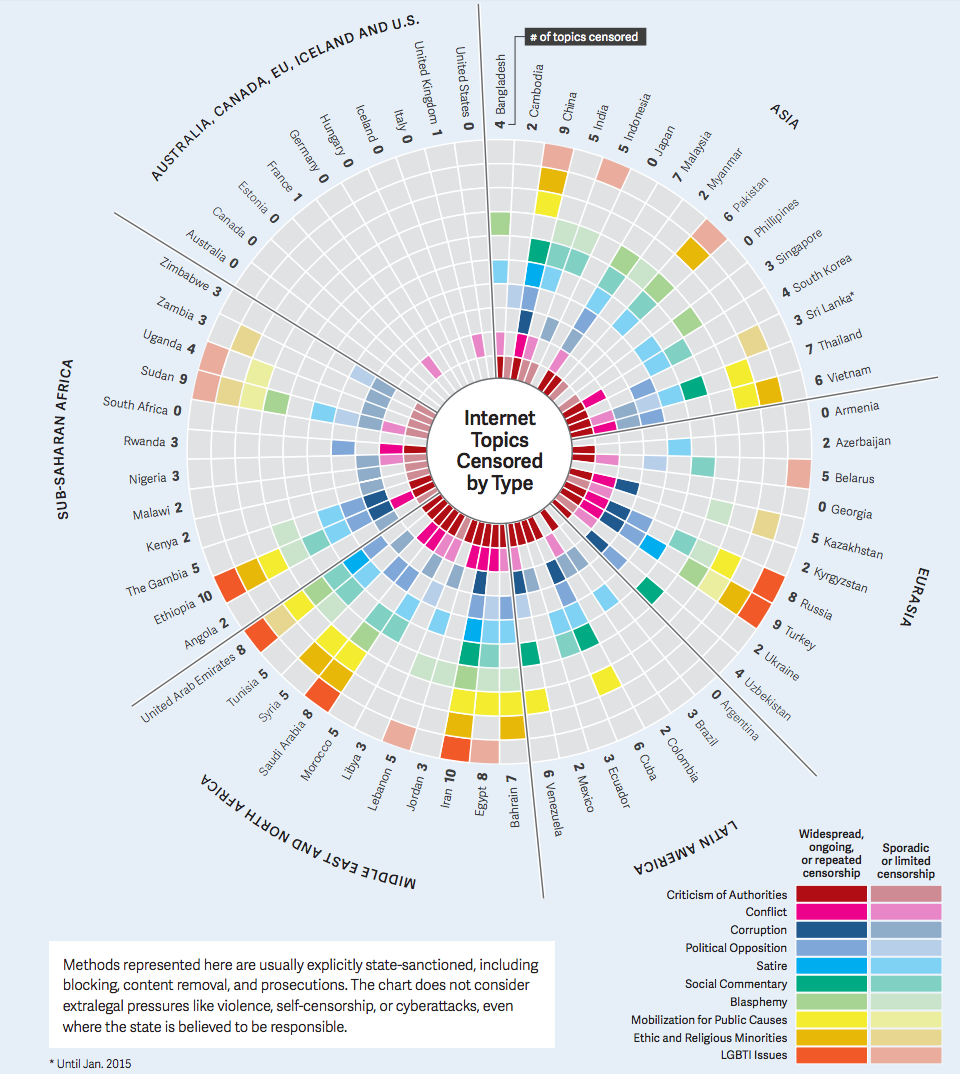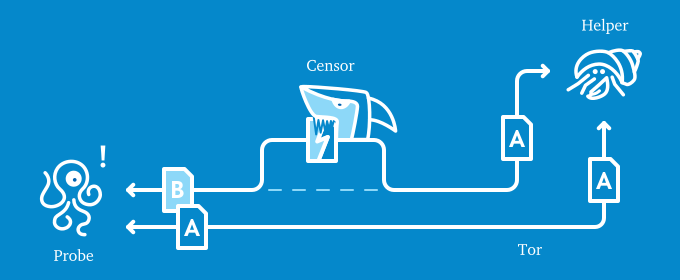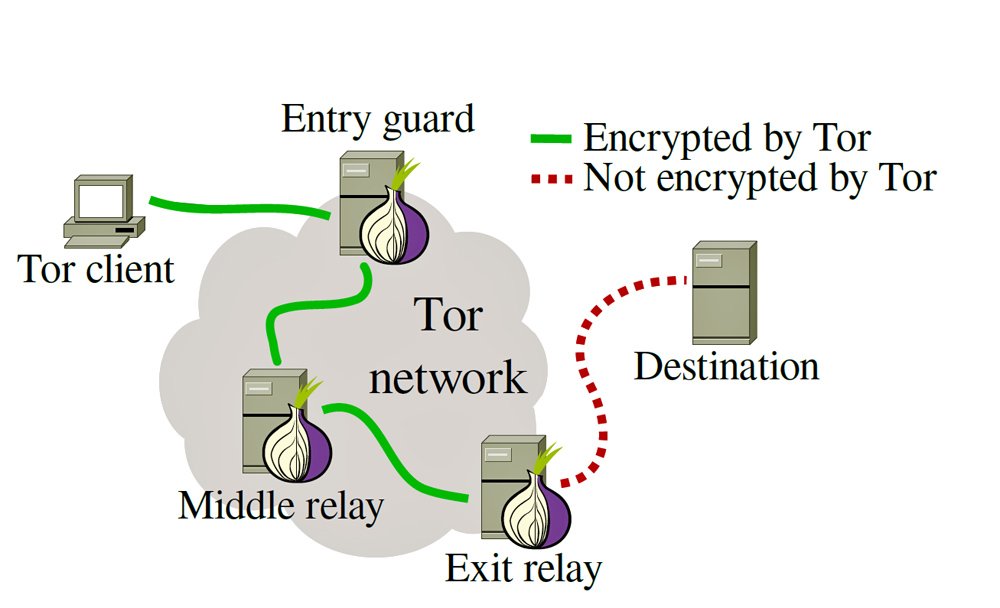
Privacy is one of the big subjects these days. On the news we can follow all the scandals with security agencies. Privacy does not exist on the internet anymore that much is clear. But things can become even worse. We can all see the examples in countries where you can not speak out freely. So privacy and free speech are the 2 subject I will fight for.
This is the situation right now about censorship.

So how can we help?
In this post I want to point out 2 services I run. First how do we know when we are censored at all? And secondly running Tor nodes to help circumvent it.
The Open Observatory of Network Interference (OONI)

The idea is to monitor the internet with probes. The probes observe levels of surveillance, censorship, and networked discrimination. By running a probe the OONI project knows if there is any filtering going on in your country (and your ISP).
And do not think something is not going on in your country. Even in countries where internet is considered to be free this is a issue already.
- OONI found something interesting stuff. Like that the T-Mobile's WebGuard tool that is a parental control tool also blocked websites including Newgrounds, Cosmopolitan Magazine, and the Tor Project.
To run a OONI probe is not very difficult. But there is somethings you need to realize. The probe is sending out requests on your behalf. This can be very sensitive. Ranging from requests about weapons, drugs and porno. So you need to feel comfortable about that. You can run it behind a VPN. But then you are testing your VPN and not your ISP.
More info about this : https://ooni.torproject.org/get-involved/partnership-program/
Now we know where there is censorship. We need to act.
Tor

With some friends I run Tor relays and i2p routers. But for now we focus on Tor.
I am sure you already know about Tor. And some of you will have used it already. If you use Tor in the USA or Europa for example you will get flagged for it. Just imagine what running a Tor relay will do.
But I believe it is our right to communicate in private and about everything so I run Tor relays anyway. But I have to admit there are some issues that did cross my mind before running them.
One of these thoughts was about who will use my relays. When someone invents tools like this for good , there is no way to prevent evil from using it also. I know that Tor is used for criminal activities. That is something I do not like at all. But when you run a Tor relay it is something you must accept. So now what?
There are a few choices you can make to keep it dedicated (as much as possible) for good.
Running obfsproxy bridges
A obfsproxy can be used when you are not allowed to run normal Tor traffic. Tor traffic will be hidden in traffic that looks normal. People who are really under pressure from censorship will use this. So it is a good way to contribute.
Running a relay with port 80 and 443
If you run a relay with these ports you will attract traffic from places where other ports are forbidden. Normally Tor uses port 9050. But ports 80/443 are the normal internet ports. 80 for http and 443 for https.
Besides thinking about running the relays for good. You also need to protect yourself
Tor works with 3 hops (see picture above). You can chose what hop you want to run. I prefer to run only the access (guard) and second hop. I do not run a exit node. An exit node is the last hop and will be the IP number that shows up in logs. So when someone does something illegal it will point to you. Of course you can make it very clear you are a Tor exit node (DNS names etc.). But still it can give you some legal problems.
You can rent a server (virtual or physical) and run a relay from there. The good about that is, that it will not be on your network. The bad is that a lot of these providers are under surveillance. There is a change that for example the NSA already have backdoors there.
If you run a Tor node from your own house. You can always put the relay behind a VPN. But then you can not run ports 80/443 (Some VPN provides give you port forwarding but always very high ports).
So there are some choices to be made. We (friends and me) run relays on virtual servers we rent, we run a bridge and we run a few relays from home (but behind a vpn). If you want to contribute to this battle and have any questions, just let me know.
Credits:
First picture: http://www.techinsider.io/americas-internet-is-incredibly-free-compared-to-most-countries-2016-7
Some general info from: http://www.torproject.org
-Whitehat @disofdis
